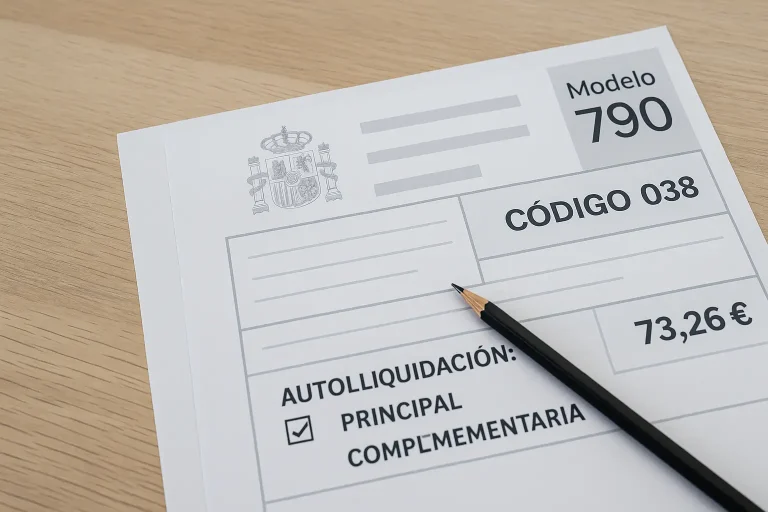
Tax Insights for Spain’s Digital Nomad Visa
A significant perk of the new digital nomad visa is the reduced tax rate that remote workers can take advantage of in Spain. This includes a flat rate significantly lower than the standard, as well as exemptions from filing certain taxes, among other advantages introduced by this legislation.
There are undoubtedly numerous inquiries about the specific tax obligations that holders of the digital nomad visa may encounter, such as whether there’s a requirement to pay the same tax in both the country where the income is generated and in Spain.
However, this article addresses all those queries. Continue reading to discover all the tax benefits available to remote workers and digital nomads residing in Spain.
Clarifying Tax Residency for Digital Nomads
Before delving into the specific rates and benefits, it’s crucial to grasp the actual tax status of digital nomads in Spain. The initial question to address is whether they are liable for tax payments and the rationale behind it.
The tax-residency rule is the key to this query. According to this rule, a foreigner will be deemed a tax resident in Spain if any one of the following three conditions is met:
• Residing in Spain for over 183 days within a year
• Having the center of economic interest within the country (i.e., where the business activities are conducted)
• Having a spouse or children residing in Spain
Consequently, digital nomads will invariably become tax residents. This is because to renew their visa, they must fulfill the first condition: residing in Spain for at least six months.
As tax residents, they are subject to certain duties, such as:
• Declaring and paying income tax on global income (earned both in Spain and abroad)
• Paying income tax at a progressive rate, which may go up to 50% (subject to regional variations)
• Reporting assets via form 720
• Fulfilling other responsibilities detailed
However, holders of the digital nomad visa, while considered residents from an immigration standpoint, may still qualify as non-residents for tax purposes. This distinction means that the aforementioned obligations would not apply in the same manner but under more favorable conditions.
This is possible through the application for a special tax regime known as the Beckham Law. What is its mechanism, and what makes it so advantageous? Let’s explore.
Exploring the Beckham Law for Digital Nomads
Read our in-depth article about Beckham Law for Digital Nomads.
Spain’s new Startup Law introduces a pivotal change in taxation by expanding the eligibility criteria for the Beckham Law. This law is a special tax regime that permits individuals to be classified as non-residents for tax purposes, even if they reside in Spain for more than 183 days annually.
Opting for tax non-residency offers substantial benefits: a significantly lower income tax rate and the elimination of the need to file and pay certain other taxes. To qualify for this regime, you must not have been a legal resident in Spain for the past five years, and your move to Spain should be work-related, which applies to remote workers.
After meeting this initial criterion, you have a six-month window following the approval of your digital nomad visa to apply at the tax office. Once approved, you’ll enjoy the perks of being a non-resident for five years, after which you’ll transition to the standard resident tax system.
Now, let’s dive into the specific tax advantages that await digital nomads.
Tax Rates Applicable to Digital Nomads in Spain
Remote workers or digital nomads in Spain are subject to a flat tax rate of 24% on their work-related income up to €600,000, and a rate of 48% on any amount exceeding that. This is particularly advantageous compared to the standard progressive tax rate, which can escalate to 50%.
Therefore, the tax rate remains fixed at 24%, rather than increasing with each new income bracket, resulting in significantly lower tax payments.
Moreover, digital nomads under this special tax regime gain additional fiscal benefits, such as:
• No requirement to file form 720 (an annual asset declaration for residents)
• Exemption from wealth tax
• A reduced capital gains tax, with rates ranging from 19% to 28%
These provisions offer substantial financial incentives. However, to fully understand the implications, there’s another question that needs to be addressed.
Are Digital Nomads Subject to Taxation Both in Spain and Internationally?
As a holder of the digital nomad visa, you’re entitled to a favorable income tax rate of just 24%. However, since digital nomads typically work remotely from Spain, their income is predominantly sourced from outside Spanish borders—often less than 20% from within Spain itself.
This raises questions about tax liabilities in the country where the income is earned. Must taxes be paid there first, and then again in Spain at the 24% rate? This scenario presents a potential double taxation challenge.
To address this, one must look to double taxation treaties—agreements between two countries (Spain and the country where the income is generated) that outline:
- The criteria to determine an individual’s residency status for tax purposes.
- Methods to avoid double taxation, either through tax exemptions or credits.
While it’s possible to face double taxation, the existence of a double taxation treaty between your country and Spain may mitigate this issue.
Given the complexities, consulting with a tax expert is advisable to navigate your specific circumstances. At Balcells Group, we offer comprehensive tax consultations with our specialists to provide tailored guidance through every step.

Schedule a free consultation
Schedule a consultation or reach out via email or WhatsApp


